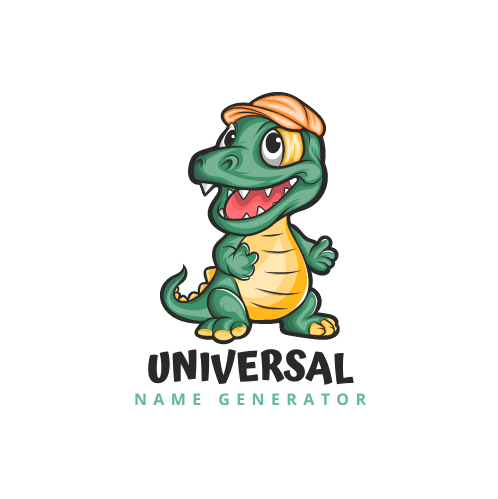Introduction
Online gaming is one of the fastest-growing industries in the world, with millions of players looking for exciting, secure, and easily accessible titles. However, as the number of game developers and studios increases, players often face the challenge of navigating multiple platforms to find their favorite games. This is where a game aggregation platform changes everything.
By combining thousands of games into a single system, aggregators make it easier for both players and operators to connect to a diverse digital library. Companies such as VeliGames are leading the way by offering cutting-edge game aggregation software that ensures seamless integration, smooth gameplay, and enhanced user experiences.
What is a Game Aggregation Platform?
At its core, a game aggregation platform is a hub that consolidates gaming content from multiple providers and makes it accessible through one unified interface. Instead of partnering with dozens of studios individually, operators integrate with one platform and instantly gain access to a wide portfolio of games.
For players, this means more choices and an improved experience. For businesses, it reduces technical complexity, saves time, and cuts down on costs while still allowing them to deliver high-quality entertainment.
Why Game Aggregators Are Essential
The gaming ecosystem has evolved into a highly competitive space. Players demand variety, and operators need efficient solutions to meet that demand. A game aggregator offers several advantages that make it indispensable:
- Diverse Content – Access to hundreds or thousands of games from different genres.
- Faster Integration – A single API connects multiple developers at once.
- Consistency – Smooth gameplay, regardless of the provider.
- Security and Licensing – Aggregators ensure compliance with industry standards.
- Scalability – Easy to expand as new developers and games are introduced.
Benefits for Players
Players are at the heart of the gaming industry, and aggregation platforms greatly enhance their experience. Some of the main benefits include:
- All-in-One Access – Gamers no longer need to visit multiple platforms.
- Variety of Genres – From casinos and sports betting to casual and adventure games.
- Smooth User Interface – Consistent navigation and performance across titles.
- Enhanced Trust – Aggregators maintain quality control, ensuring only reliable content is included.
- More Engagement – Extra features like tournaments, achievements, and rewards keep gaming fun.
Benefits for Operators
Operators stand to gain even more from aggregators:
- Time and Cost Savings – Instead of handling dozens of separate integrations, they only need one.
- Expanded Libraries – The ability to attract a broader audience with a richer game selection.
- Analytics and Insights – Aggregation platforms provide valuable data about player behavior.
- Customization – Operators can tailor their offerings to align with their branding and target audience.
- Competitive Edge – Offering a larger and more varied portfolio helps them stand out in the market.
The Role of Game Aggregation Software
Behind every successful aggregator lies robust game aggregation software. This software powers the integration and ensures that everything runs smoothly.
Its main features include:
- Single Integration Process – Operators can instantly access multiple providers.
- Cross-Platform Compatibility – Games are optimized for PC, mobile, and tablets.
- Regulatory Compliance – Ensures all content meets regional licensing requirements.
- Monitoring and Analytics – Tracks performance to improve user engagement.
- Security Measures – Protects players from fraud and guarantees fair play.
Without this technology, the idea of seamless game aggregation wouldn’t be possible.
Challenges in Game Aggregation
Despite its benefits, aggregation platforms face certain challenges:
- Regulatory Complexity – Different regions have varying compliance standards.
- Market Competition – With more aggregators appearing, it’s harder to differentiate.
- Balancing Quality and Quantity – Ensuring every game meets quality standards.
- High Technical Expectations – Gamers demand faster load times and innovative features.
The Future of Game Aggregators
The future of game aggregation platforms is tied to emerging technology. In the coming years, we can expect:
- Cloud Gaming – No downloads, just instant play from the cloud.
- Blockchain Integration – Improved transparency, security, and ownership of in-game assets.
- AI-Powered Recommendations – Personalized game suggestions for every player.
- Cross-Device Synchronization – Play on mobile, continue on desktop without interruptions.
- Enhanced Social Features – Built-in chat, leaderboards, and community challenges.
As gaming continues to expand globally, aggregators will play a crucial role in meeting both player and operator demands.
Conclusion
The gaming industry thrives on innovation, accessibility, and user engagement and game aggregation platforms are delivering all three. They simplify the gaming experience by centralizing content, offering operators efficiency, and giving players unparalleled choice. Backed by powerful game aggregation software, these platforms are setting new benchmarks for digital entertainment.
With leaders like VeliGames paving the way, it’s clear that game aggregators will remain at the core of the gaming industry’s evolution, ensuring that the future of gaming is seamless, diverse, and exciting for everyone involved.
FAQs
Q1: What is the main purpose of a game aggregation platform?
Its purpose is to consolidate content from multiple developers, giving players and operators one-stop access to diverse games.
Q2: How do players benefit from game aggregators?
Players enjoy access to a wide selection of genres, smoother navigation, consistent quality, and added engagement features.
Q3: What role does game aggregation software play?
It powers integration, ensures compliance, manages analytics, and provides security for both operators and players.
Q4: Why should operators use a game aggregator?
It saves them time and costs, expands their offerings, and gives them access to valuable insights for better business decisions.
Q5: What is the future of game aggregation?
Expect more AI-driven personalization, blockchain-based transparency, cloud gaming, and advanced gamification features.
